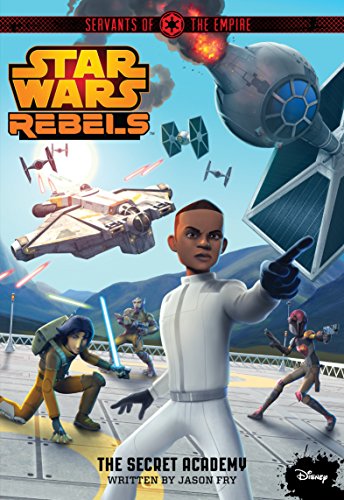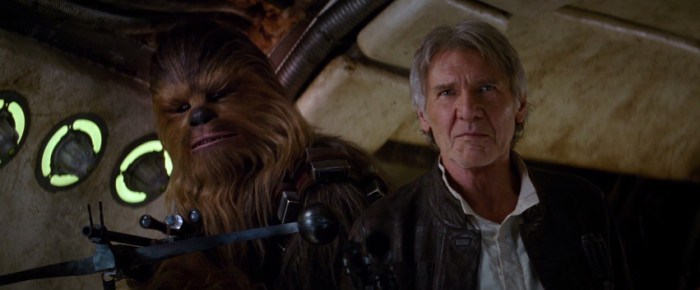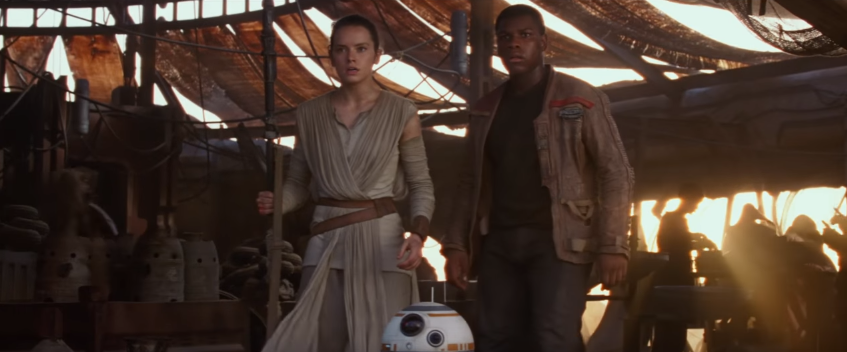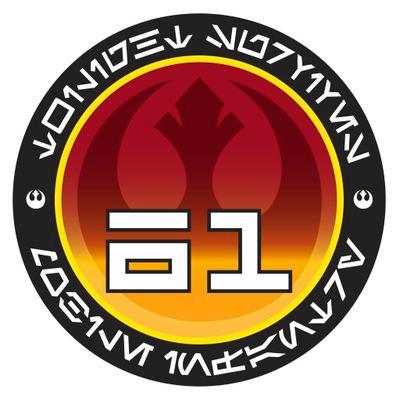(As ever, we will endeavor to avoid spoilers – but as usual, this piece is analysis as much as review so we’ll be discussing the plot in vague terms to make the points we’re making)
 As the Journey to The Force Awakens campaign kicked off on September 4th, one of the many questions readers started asking was: why is the Empire falling apart so quickly? The obtuse answer is that this is what the story demands, and we’ll learn the full reasons on December 18th. But many of us thought the war would last far longer than in the Expanded Universe, where the Empire was driven out of the Core Worlds as early as five years after Return of the Jedi. Surely this time the war would truly rage on for many many years: but that’s not what happened. Suddenly, the Empire of the EU seemed a lot more solid and formidable. Folks speculated as to the reasons why, such as the collapse of central authority, the unwillingness of the Navy to waste time protecting a symbolic world like Coruscant, defections to the New Republic, etc.
As the Journey to The Force Awakens campaign kicked off on September 4th, one of the many questions readers started asking was: why is the Empire falling apart so quickly? The obtuse answer is that this is what the story demands, and we’ll learn the full reasons on December 18th. But many of us thought the war would last far longer than in the Expanded Universe, where the Empire was driven out of the Core Worlds as early as five years after Return of the Jedi. Surely this time the war would truly rage on for many many years: but that’s not what happened. Suddenly, the Empire of the EU seemed a lot more solid and formidable. Folks speculated as to the reasons why, such as the collapse of central authority, the unwillingness of the Navy to waste time protecting a symbolic world like Coruscant, defections to the New Republic, etc.
The real question, though, was why nobody was bothering to fight for the Empire? Even discounting propaganda, surely folks might feel under threat by the rebels and would want to defend their way of life? The Alliance/New Republic approach to the war doubtless played no small part in the lack of widespread Imperial resistance on the part of the galactic citizenry (something that we may touch on in our next “Gray Matters” piece), but Imperial collapse signifies a widespread lack of support for the Empire. This is in marked contrast to both Revenge of the Sith – where the Empire was ushered in by thunderous applause – and the old EU, where the Empire had solid support for quite some time.
Jason Fry’s Servants of the Empire books in general and The Secret Academy in particular give us the answer. This series – among many things – explores the true lengths the Empire goes to in order to inculcate loyalty in its subjects, and it shows that the Empire’s attempts at gaining the populace’s loyalty are manipulative at best and outright programmed at worst. The Empire does not inspire devotion or loyalty, it instills it by force. But The Secret Academy shows us that indoctrination through propaganda and misinformation is the gentlest of the Empire’s methods, and it has more sinister ideas in mind for the future of the galactic populace. Edge of the Galaxy already explored the Empire’s exploitation of planets, Rebel in the Ranks illustrated the brutality inherent in Imperial training, and Imperial Justice showed us the dark side of Imperial oppression: but The Secret Academy shows the existential danger posed by the Imperial system and indirectly provides the elusive answer as to why the Empire fell so quickly. Essentially, the Empire doth protest too much: the sheer lengths the Empire goes to shows that even the servants of the Empire aren’t really willing adherents of the system. Read More



 Star Wars Battlefront: Twilight Company is not your typical videogame tie-in. Even though it borrows part of its title from a soon to be released FPS game (that promises to be quite spectacular), Twilight Company works on its own without the need of the Battlefront crutch. The novel is pure military sci-fi. It’s less glamorous than the Rogue Squadron novels and more gritty than the Republic Commando series. Our main characters are not starfighter pilots or special forces commandos: they are the infantry, the people fighting the Galactic Civil War in the frontlines. Most importantly, Twilight Company gives us a hard look at what being a soldier in the Rebel Alliance during a period of open conflict is like and boy, is it engaging.
Star Wars Battlefront: Twilight Company is not your typical videogame tie-in. Even though it borrows part of its title from a soon to be released FPS game (that promises to be quite spectacular), Twilight Company works on its own without the need of the Battlefront crutch. The novel is pure military sci-fi. It’s less glamorous than the Rogue Squadron novels and more gritty than the Republic Commando series. Our main characters are not starfighter pilots or special forces commandos: they are the infantry, the people fighting the Galactic Civil War in the frontlines. Most importantly, Twilight Company gives us a hard look at what being a soldier in the Rebel Alliance during a period of open conflict is like and boy, is it engaging. As the Journey to The Force Awakens campaign kicked off on September 4th, one of the many questions readers started asking was: why is the Empire falling apart so quickly? The obtuse answer is that this is what the story demands, and we’ll learn the full reasons on December 18th. But many of us thought the war would last far longer than in the Expanded Universe, where the Empire was driven out of the Core Worlds as early as five years after Return of the Jedi. Surely this time the war would truly rage on for many many years: but that’s not what happened. Suddenly, the Empire of the EU seemed a lot more solid and formidable. Folks speculated as to the reasons why, such as the collapse of central authority, the unwillingness of the Navy to waste time protecting a symbolic world like Coruscant, defections to the New Republic, etc.
As the Journey to The Force Awakens campaign kicked off on September 4th, one of the many questions readers started asking was: why is the Empire falling apart so quickly? The obtuse answer is that this is what the story demands, and we’ll learn the full reasons on December 18th. But many of us thought the war would last far longer than in the Expanded Universe, where the Empire was driven out of the Core Worlds as early as five years after Return of the Jedi. Surely this time the war would truly rage on for many many years: but that’s not what happened. Suddenly, the Empire of the EU seemed a lot more solid and formidable. Folks speculated as to the reasons why, such as the collapse of central authority, the unwillingness of the Navy to waste time protecting a symbolic world like Coruscant, defections to the New Republic, etc.